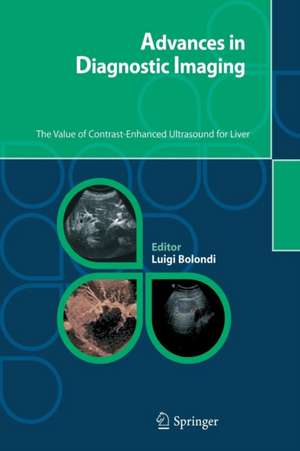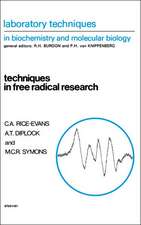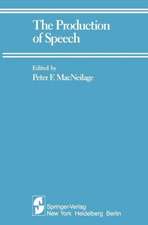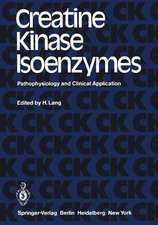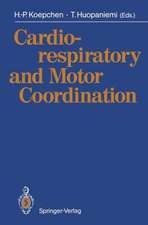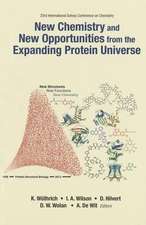Advances in Diagnostic Imaging: The Value of Contrast-Enhanced Ultrasound for Liver
Editat de Luigi Bolondien Limba Engleză Paperback – 19 ian 2006
The availability of blood-pool contrast agents for ultrasound (US), in particular second-generation US contrast agents based on perfluorocarbon- or sulfur-hexafluoride-filled microbubbles, and the development of contrast-specific software and technologies have opened up new perspectives both for the immediate characterisation of any mass lesion detected in the liver and for increasing the sensitivity of US in the detection of liver metastases.
Taking into account the great impact of this new technology on clinical practice, the European Federation of Societies for Ultrasound in Medicine and Biology (EFSUMB) organised, in January 2004, in Rotterdam, a consensus meeting of experts in order to develop guidelines for the use of US contrast agents in the diagnosis of liver diseases . These guidelines, as well as discussions of further advances in the clinical application of contrast-enhanced harmonic US are presented in this book by an internationally renowned group of experts. The book represents provides an important starting point for clinical implementation of this new diagnostic procedure.
Preț: 359.98 lei
Preț vechi: 378.92 lei
-5% Nou
Puncte Express: 540
Preț estimativ în valută:
68.88€ • 71.92$ • 57.01£
68.88€ • 71.92$ • 57.01£
Carte tipărită la comandă
Livrare economică 05-19 aprilie
Preluare comenzi: 021 569.72.76
Specificații
ISBN-13: 9788847004573
ISBN-10: 8847004578
Pagini: 76
Ilustrații: VIII, 56 p.
Dimensiuni: 155 x 235 x 4 mm
Greutate: 0.2 kg
Ediția:2006
Editura: Springer
Colecția Springer
Locul publicării:Milano, Italy
ISBN-10: 8847004578
Pagini: 76
Ilustrații: VIII, 56 p.
Dimensiuni: 155 x 235 x 4 mm
Greutate: 0.2 kg
Ediția:2006
Editura: Springer
Colecția Springer
Locul publicării:Milano, Italy
Public țintă
Professional/practitionerCuprins
Impact of European Federation of Societies for Ultrasound in Medicine and Biology (EFSUMB) Guidelines on the Use of Contrast Agents in Liver Ultrasound.- The Role of Contrast-Enhanced Ultrasound (CEUS) in Identifying and Characterizing Focal Liver Lesions.- Contrast-Enhanced Ultrasound in the Management of Cirrhotic Patients: HCC Diagnosis, Staging and Monitoring of Percutaneous Treatments.
Textul de pe ultima copertă
In recent years, the imaging-based diagnosis of mass liver lesions has become increasingly complex due to the number and morphological variability of lesions that modern imaging techniques are currently able to display. If the sensitivity in detection has greatly increased, characterisation has remained difficult and represents a critical challenge for the clinician.
The availability of blood-pool contrast agents for ultrasound (US), in particular second-generation US contrast agents based on perfluorocarbon- or sulfur-hexafluoride-filled microbubbles, and the development of contrast-specific software and technologies have opened up new perspectives both for the immediate characterisation of any mass lesion detected in the liver and for increasing the sensitivity of US in the detection of liver metastases.
Taking into account the great impact of this new technology on clinical practice, the European Federation of Societies for Ultrasound in Medicine and Biology (EFSUMB) organised, in January 2004, in Rotterdam, a consensus meeting of experts in order to develop guidelines for the use of US contrast agents in the diagnosis of liver diseases . These guidelines, as well as discussions of further advances in the clinical application of contrast-enhanced harmonic US are presented in this book by an internationally renowned group of experts. The book represents provides an important starting point for clinical implementation of this new diagnostic procedure.
The availability of blood-pool contrast agents for ultrasound (US), in particular second-generation US contrast agents based on perfluorocarbon- or sulfur-hexafluoride-filled microbubbles, and the development of contrast-specific software and technologies have opened up new perspectives both for the immediate characterisation of any mass lesion detected in the liver and for increasing the sensitivity of US in the detection of liver metastases.
Taking into account the great impact of this new technology on clinical practice, the European Federation of Societies for Ultrasound in Medicine and Biology (EFSUMB) organised, in January 2004, in Rotterdam, a consensus meeting of experts in order to develop guidelines for the use of US contrast agents in the diagnosis of liver diseases . These guidelines, as well as discussions of further advances in the clinical application of contrast-enhanced harmonic US are presented in this book by an internationally renowned group of experts. The book represents provides an important starting point for clinical implementation of this new diagnostic procedure.
